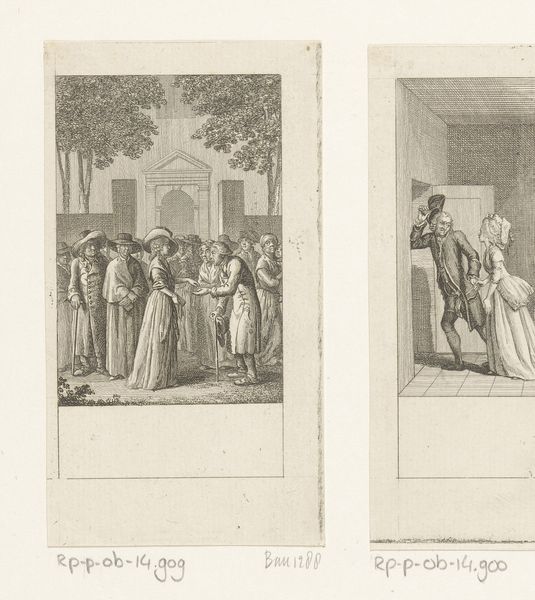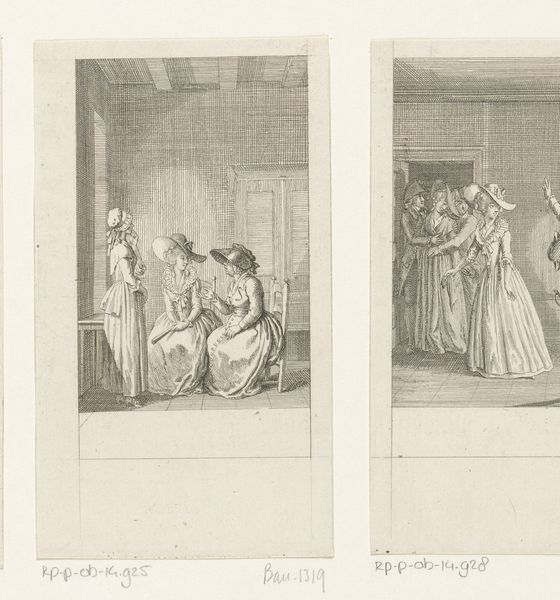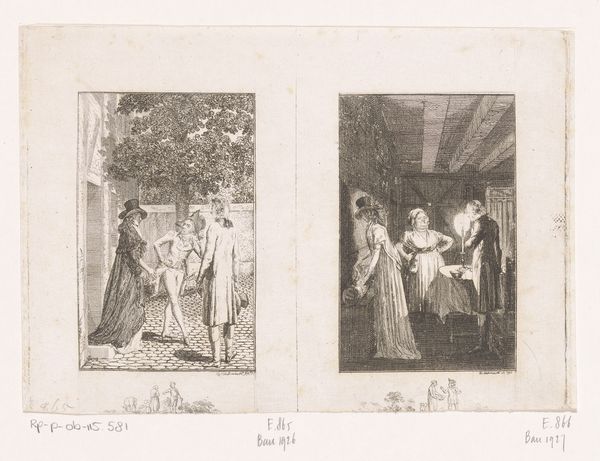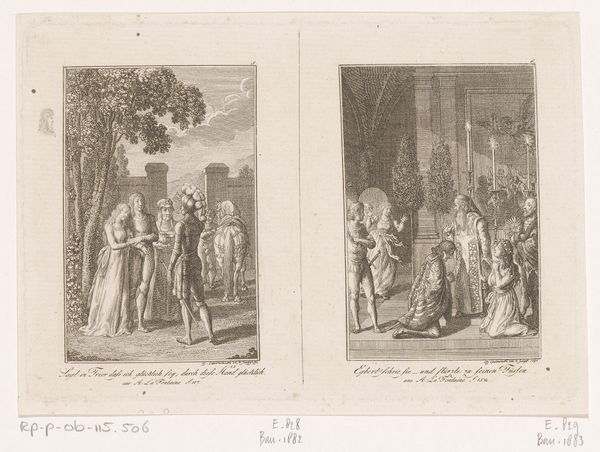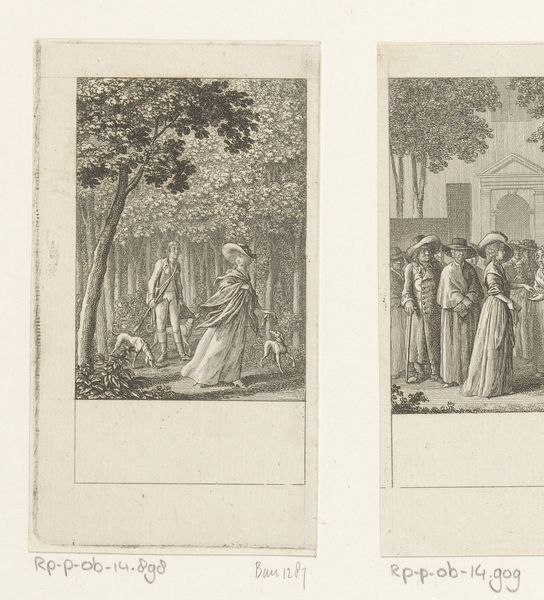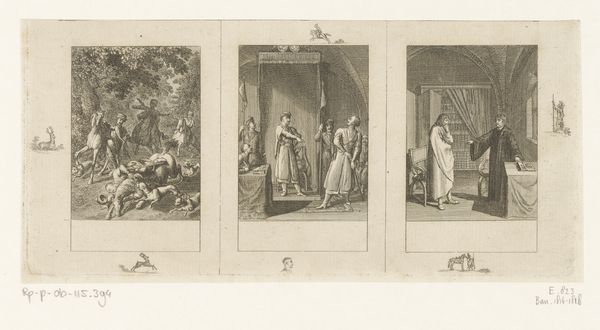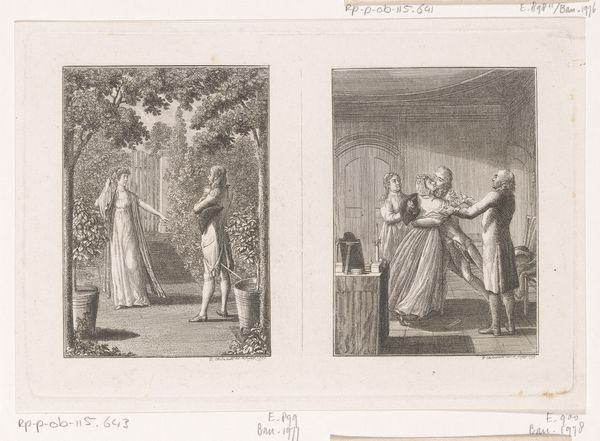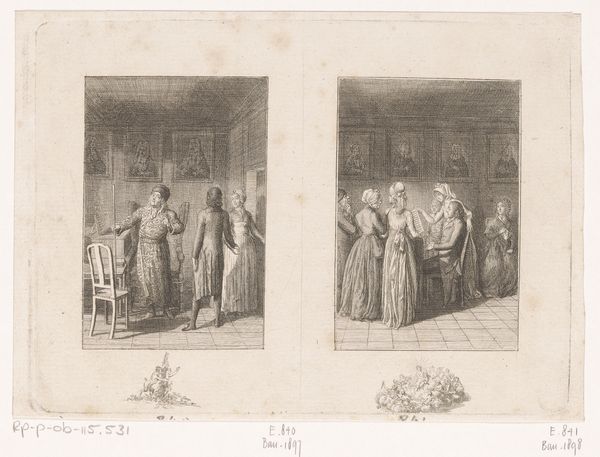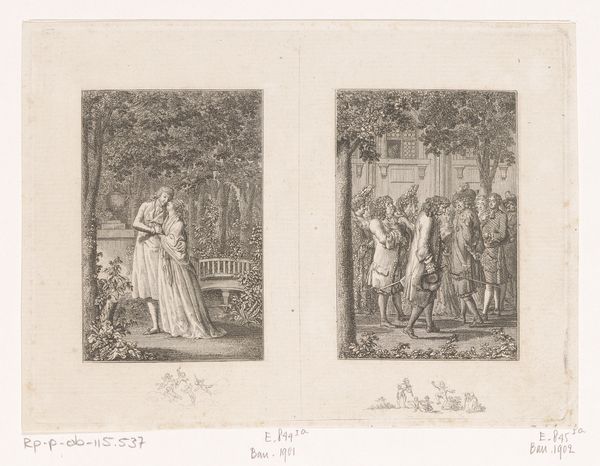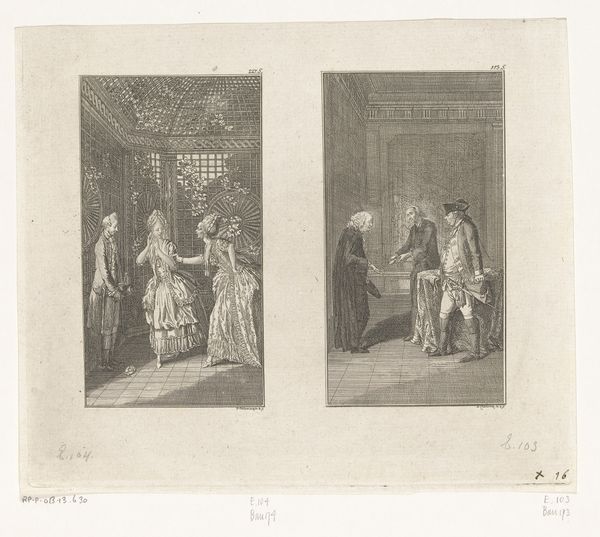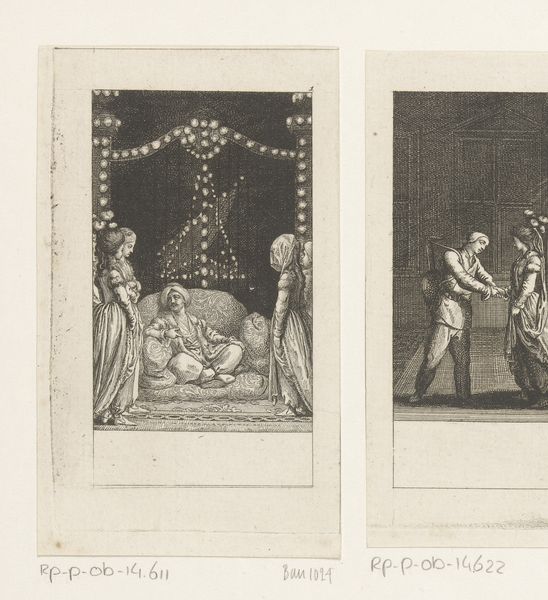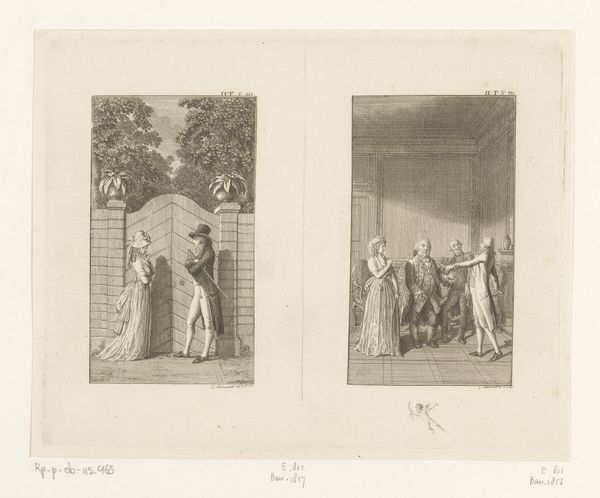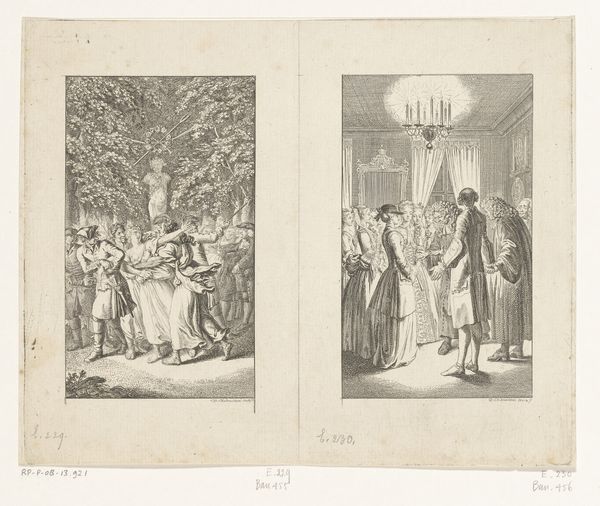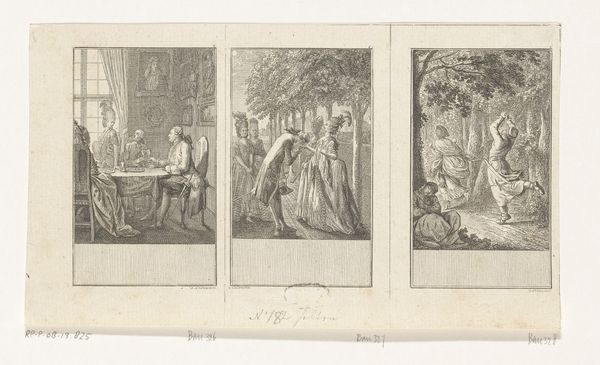
print, engraving
#
narrative-art
# print
#
old engraving style
#
figuration
#
personal sketchbook
#
romanticism
#
history-painting
#
engraving
Copyright: National Gallery of Art: CC0 1.0
Daniel Nikolaus Chodowiecki created these illustrations to La Fontaine using etching, a printmaking technique, sometime in the late 18th century. The composition is divided into two distinct scenes, each employing delicate line work to define figures and settings. On the left, a sombre indoor scene depicts a sickbed, while on the right, a lively outdoor gathering unfolds. Notice how Chodowiecki uses contrasting densities of lines to differentiate between the dark, enclosed space of illness and the open, airy park. In the left scene, the converging lines of the bed canopy and the figures leaning over the patient create a sense of enclosure and concern. This contrasts sharply with the right scene, where the lines are more dispersed, suggesting freedom and social interaction. The formal arrangement here invites a semiotic reading. The left panel signifies confinement and the private sphere, whereas the right panel represents openness, a space where social relations are emphasized. The visual grammar suggests a narrative about the duality of human experience—sickness versus health, isolation versus society, echoing La Fontaine's moralistic fables. The etchings serve as visual allegories, prompting us to consider broader social and philosophical themes.
Comments
No comments
Be the first to comment and join the conversation on the ultimate creative platform.
